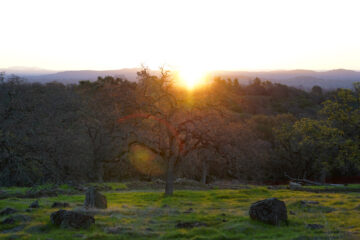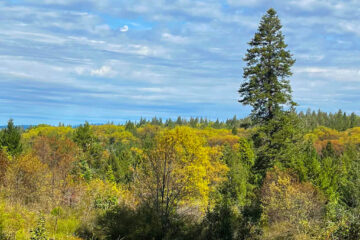If you took an amble through Auburn School Park Preserve last month, you may have noticed some hard-working young women sprucing up the slope in front of the community garden. Girls Scouts Jen Kramer and Allison Kiger, along with a few parents, volunteered to restore the area and help Emma Forester earn her Girl Scouts Gold Award. The scouts, who are juniors at Antelope High School, rose early the morning after prom and traveled to Auburn to shovel new soil onto the hillside and plant native seeds such as Baby Blue Eyes, Bolander’s Sunflower, Narrow-Leaved Milkweed, and Golden Lupine, which Forester hopes will attract native bees.
Soon, Forester will return to the park to install five bee boxes, which will encourage Carpenter, Mason, and Bumble bees— singular insects that don’t live in colonies—to stay in the area. These native bees are better pollinators for native plants than non-native honeybees, Forester said, and are better for California’s ecosystem. “Native bees are messier and furrier, so they pollinate more than honeybees,” she said. “Also, they don’t die from the cold like honeybees.”
To earn the Gold Award, Forester had to create a project that would improve the world in some way. She was required to identify an issue, investigate it thoroughly, build a team, create a plan, present the plan, gather feedback, take action, as well as educate and inspire others about her project. The Gold Award is the highest Girl Scout honor.
Forester chose her award project after meeting Placer Land Trust’s land manager, Justin Wages, at a creek clean-up where they discussed the need to promote native bees and the restoration needed at Auburn Community Garden. In her research, Forester learned that unlike honeybees, native bees are immune to colony collapse disorder because they don’t live in colonies, so it’s important to promote their populations by providing the native plant pollen they need to survive.
Forester’s seed mix was donated by the Xerces Society, and Wages added his own mix of Coyote Mint seeds, which he hopes will attract the Dogface Butterfly, California’s state insect. These insects will pollinate the native plants Forester and her crew planted, as well as the surrounding area. “I hope the bees will help pollinate the community garden and hopefully the entire park,” Forester said.


